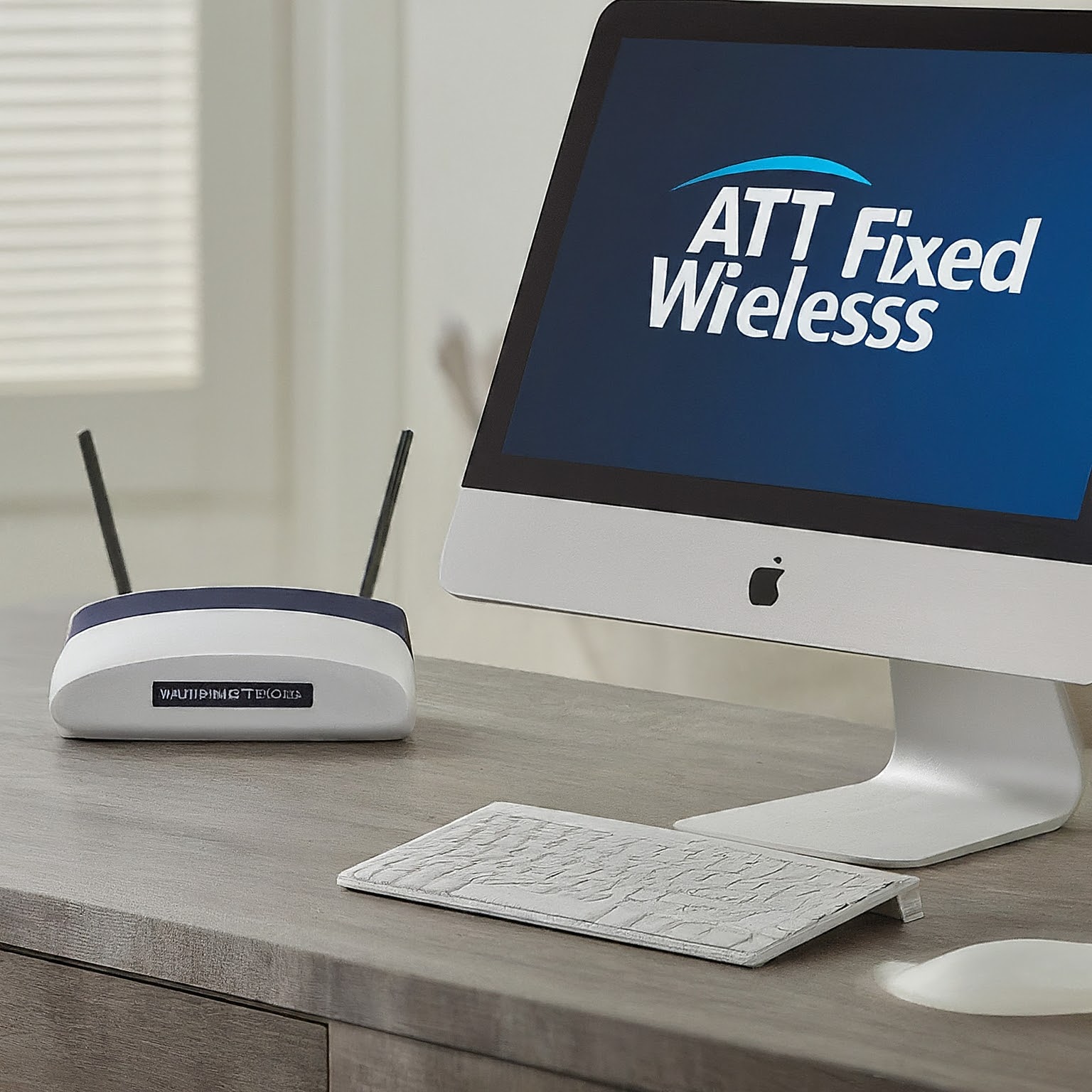In today’s digital age, a reliable and fast internet connection is no longer a luxury, it’s a necessity. Whether you’re streaming your favorite shows, working remotely, or staying connected with loved ones online, a strong internet backbone is crucial. But what if traditional cable or fiber optic options aren’t available in your area? This is where AT&T Fixed Wireless comes in.

AT&T Fixed Wireless: An Overview
AT&T Fixed Wireless is a high-speed internet service delivered through the existing AT&T wireless network. Unlike traditional cable or fiber optic internet, which relies on physical cables being run to your home, Fixed Wireless utilizes cell towers and a dedicated antenna to provide internet access. This makes it a particularly attractive option for those in rural or suburban areas where cable or fiber optic infrastructure might be limited.
How Does AT&T Fixed Wireless Work?
Here’s a breakdown of how AT&T Fixed Wireless brings the internet to your home:
- Cell Towers: The service leverages existing AT&T cell towers in your area. These towers transmit a wireless signal that carries internet data.
- Outdoor Antenna: A technician installs a small outdoor antenna on your home. This antenna receives the signal from the cell tower and amplifies it.
- AT&T All-Fi Hub: The amplified signal is then sent to the AT&T All-Fi Hub, a device provided by AT&T. This hub acts as your home’s Wi-Fi router, broadcasting a wireless internet signal throughout your house.
Benefits of AT&T Fixed Wireless
- Wide Availability: Since it relies on existing cell towers, AT&T Fixed Wireless offers wider availability compared to traditional cable or fiber optic options. This makes it a viable choice for those in areas where cable or fiber optic infrastructure is limited.
- Quick Installation: Installation of the outdoor antenna and AT&T All-Fi Hub is typically quicker than traditional internet setups, as there’s no need for extensive cable runs.
- No Contracts: Unlike some traditional internet providers, AT&T Fixed Wireless often comes with no long-term contracts, offering flexibility for your needs.
- Fast Speeds: AT&T Fixed Wireless utilizes 4G LTE and, in some areas, 5G technology, delivering download speeds that can compete with basic cable or DSL plans.
- Easy Setup: The AT&T All-Fi Hub is designed for easy setup, often with a user-friendly interface to manage your Wi-Fi network and settings.
Things to Consider with AT&T Fixed Wireless
While AT&T Fixed Wireless offers a compelling alternative, it’s essential to be aware of some potential drawbacks:
- Data Caps: Unlike traditional unlimited internet plans, AT&T Fixed Wireless often comes with data caps. Exceeding these caps could result in throttling or additional charges.
- Dependence on Cell Signal Strength: The performance of AT&T Fixed Wireless heavily relies on the strength of the cell signal in your area. Obstructions or distance from cell towers could impact your internet speeds.
- Latency: Fixed Wireless internet may experience higher latency compared to cable or fiber optic connections. Latency refers to the time it takes for data to travel between your device and the internet, and higher latency can be an issue for real-time applications like online gaming or video conferencing.
- Limited Availability for High-Speed Plans: While AT&T Fixed Wireless offers competitive speeds, the highest tiers might not be readily available in all areas.
Is AT&T Fixed Wireless Right for You?
AT&T Fixed Wireless is a great option for those in areas with limited cable or fiber optic choices and those who prioritize quick installation and no long-term contracts. However, if you require consistently high speeds, prioritize low latency for real-time applications, or use a large amount of data per month, traditional cable or fiber optic connections might be a better fit.
Exploring AT&T Fixed Wireless Plans and Packages
AT&T offers various Fixed Wireless plans with varying data allowances and speeds. It’s crucial to research the specific plans available in your area and choose one that aligns with your internet usage needs. Be sure to factor in data caps and potential throttling after exceeding those caps.
AT&T Fixed Wireless vs. Other Wireless Home Internet Options
Several other providers offer wireless home internet solutions. It’s recommended to compare these options based on factors like:
- Availability: Check if other providers offer service in your area and compare their coverage maps.
- Pricing: Compare data plans, speeds, and potential hidden fees across different providers.
- Equipment: See if the provider provides the necessary equipment (outdoor antenna and Wi-Fi router) and if there are any